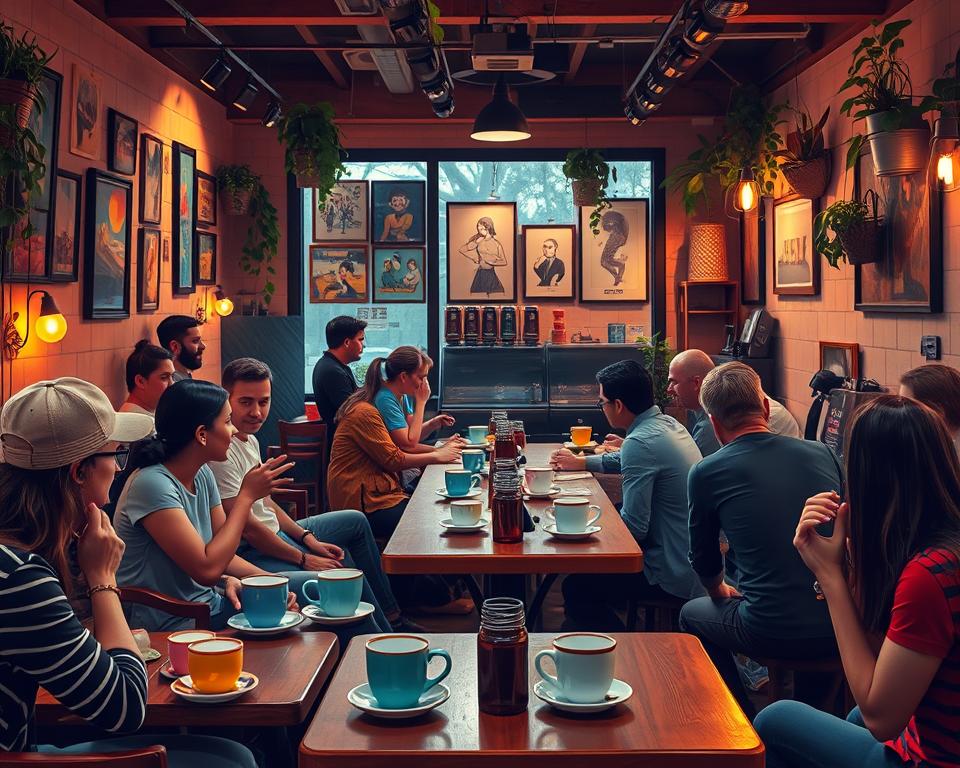Coffee has long been more than just a beverage; it has served as a catalyst for social interaction, intellectual discourse, and even political revolution. From the bustling coffeehouses of 17th-century Europe to the salons of the Enlightenment, coffee has played a pivotal role in shaping societies and sparking transformative movements. Let’s explore how this humble drink became a powerful force in history.
The Rise of Coffeehouses: Hubs of Enlightenment
England: Penny Universities
In 17th-century England, coffeehouses emerged as centers of learning and debate. For the price of a penny, patrons could purchase a cup of coffee and engage in lively discussions on politics, science, and philosophy. These establishments earned the nickname “penny universities” due to the wealth of knowledge exchanged within their walls.
- Notable Impact: Coffeehouses contributed to the spread of Enlightenment ideas and facilitated the exchange of information among intellectuals, merchants, and politicians.
France: Salons and Revolutionary Ideas
In France, coffeehouses and salons became breeding grounds for revolutionary thought. Philosophers like Voltaire, Rousseau, and Diderot frequented these venues, discussing ideas that would eventually fuel the French Revolution.
- Notable Impact: The dissemination of Enlightenment ideals in coffeehouses helped challenge the existing social and political order, leading to significant societal changes.
Coffee and the American Revolution
The Boston Tea Party and Coffee’s Rise
The Boston Tea Party in 1773, a protest against British taxation, led to a decline in tea consumption among American colonists. As a result, coffee gained popularity as a patriotic alternative.
- Notable Impact: Coffee became a symbol of American independence and resistance, reinforcing its role in the cultural identity of the emerging nation.
Coffee’s Role in the Ottoman Empire
The Coffeehouse as a Social Institution
In the Ottoman Empire, coffeehouses served as important social hubs where people gathered to discuss news, literature, and politics. These venues played a crucial role in the cultural and intellectual life of the empire.
- Notable Impact: Coffeehouses facilitated the exchange of ideas and contributed to the intellectual vibrancy of Ottoman society.
Coffee and the Age of Enlightenment
Stimulating Intellectual Pursuits
The stimulating effects of coffee made it a favorite among Enlightenment thinkers. The beverage’s ability to enhance focus and alertness complemented the era’s emphasis on reason and knowledge.
- Notable Impact: Coffee fueled the intellectual energy of the Enlightenment, supporting the work of scientists, philosophers, and writers.
Coffee in Modern Social Movements
20th Century and Beyond
In the 20th century, coffeehouses continued to serve as gathering places for artists, activists, and intellectuals. From the Beat Generation in the United States to political dissidents in Eastern Europe, these venues provided spaces for creative and revolutionary expression.
- Notable Impact: Coffeehouses remained vital centers for cultural and political movements, fostering community and dialogue.
Final Thoughts
Throughout history, coffee has been more than a mere beverage; it has been a conduit for connection, a stimulant for thought, and a catalyst for change. From the Enlightenment to modern social movements, coffeehouses have nurtured the exchange of ideas that shape our world. As we sip our coffee today, we participate in a rich tradition of discourse and transformation.
